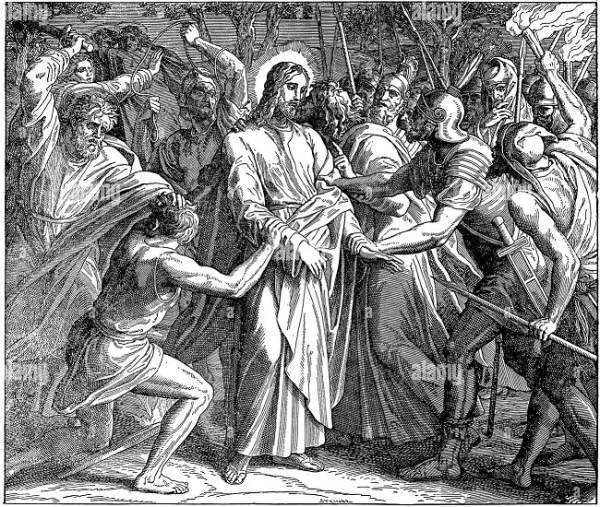“Then Jesus was led up by the Spirit into the wilderness to be tempted by the devil. And after fasting forty days and forty nights, he was hungry. And the tempter came and said to him, “If you are the Son of God, command these stones to become loaves of bread.”
But he answered, “It is written, “‘Man shall not live by bread alone, but by every word that comes from the mouth of God.’”
Then the devil took him to the holy city and set him on the pinnacle of the temple and said to him, “If you are the Son of God, throw yourself down, for it is written, “‘He will command his angels concerning you,’ and “‘On their hands they will bear you up, lest you strike your foot against a stone.’”
Jesus said to him, “Again it is written, ‘You shall not put the Lord your God to the test.’”
Again, the devil took him to a very high mountain and showed him all the kingdoms of the world and their glory. And he said to him, “All these I will give you, if you will fall down and worship me.”
Then Jesus said to him, “Be gone, Satan! For it is written, “‘You shall worship the Lord your God and him only shall you serve.’”
Then the devil left him, and behold, angels came and were ministering to him.”
Matthew 4:1-11
We like our ideas to be simple, don’t we? Black and white is easier than shades of grey. We like the news to be about good guys vs bad guys, not bad guys vs worse guys. We like our Instagram Stories to be mostly pictures, not text. And then there’s that design principle called KISS – Keep It Simple, Stupid.
But the problem is most things aren’t actually simple. People aren’t simple. And sometimes packaging complicated things to look simple is not truthful or helpful. Christians often like to do this — the Bible is all about this, or being a Christian means doing that. We like to talk about a Jesus who’s nice and cuddly, always ready to forgive, a nice teacher, meek and mild, basically Santa Claus but skinny and not just available during Christmas.
Continue reading “on Jesus’s kingship and its complications”